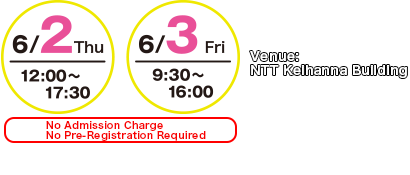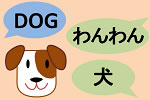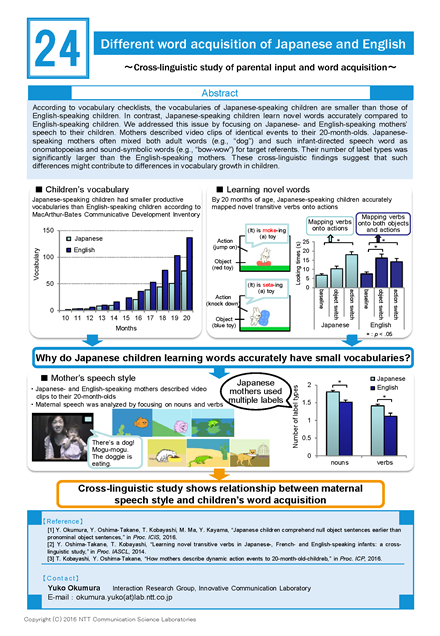
Science of Human and Communication
Different word acquisition of Japanese and English
- Cross-linguistic study of parental input and word acquisition -

Abstract
According to vocabulary checklists, the vocabularies of Japanese-speaking children are smaller than those of English-speaking children. In contrast, Japanese-speaking children learn novel words accurately compared to English-speaking children. We addressed this issue by focusing on Japanese- and English-speaking mothers’ speech to their children. Mothers described video clips of identical events to their 20-month-olds. Japanese-speaking mothers often mixed both adult words (e.g., “dog”) and such infant-directed speech word as onomatopoeias and sound-symbolic words (e.g., “bow-wow”) for target referents. Their number of label types was significantly larger than the English-speaking mothers. These cross-linguistic findings suggest that such differences might contribute to differences in vocabulary growth in children.
Photos
Poster
Presenters

Yuko Okumura
Innovative Communication Laboratory
Innovative Communication Laboratory

Yuriko Oshima
Innovative Communication Laboratory
Innovative Communication Laboratory

Ryoko Mugitani
Human Information Science Laboratory
Human Information Science Laboratory





